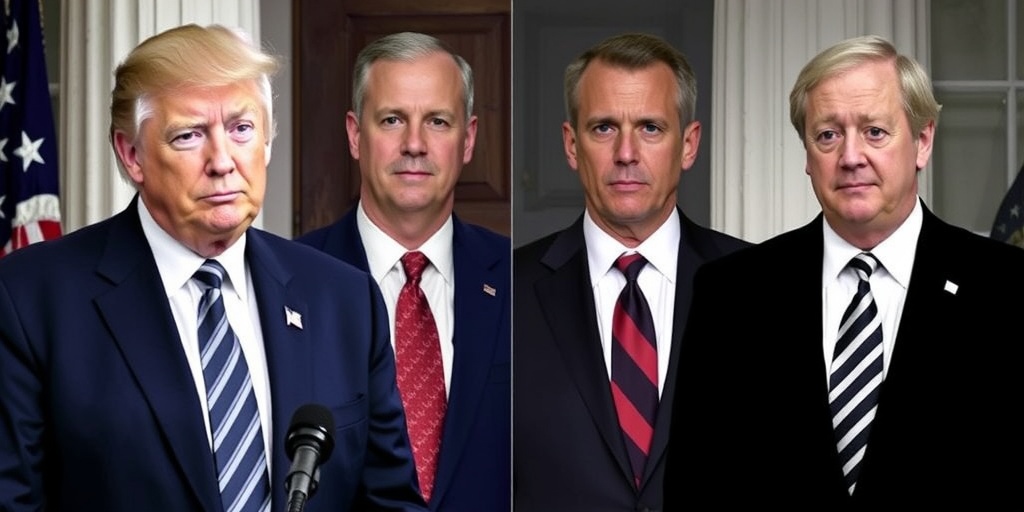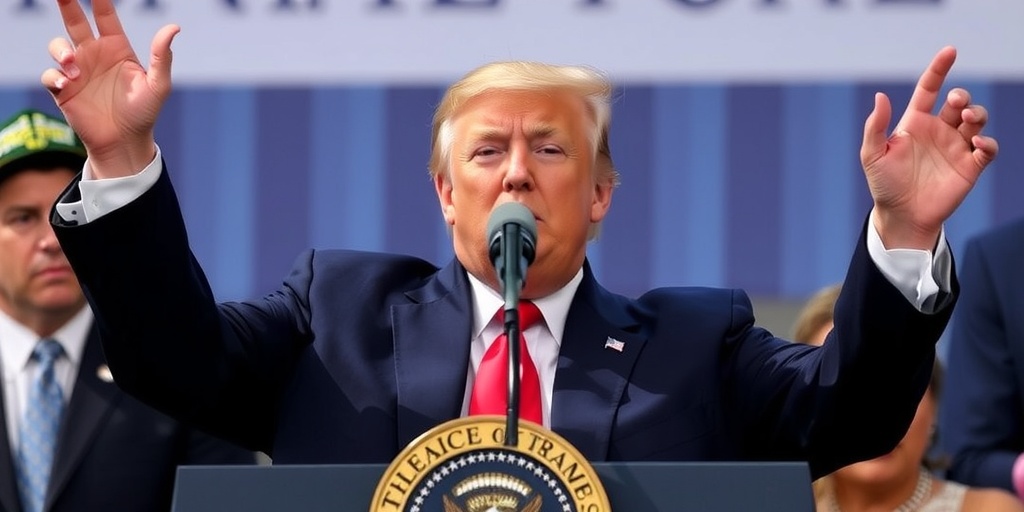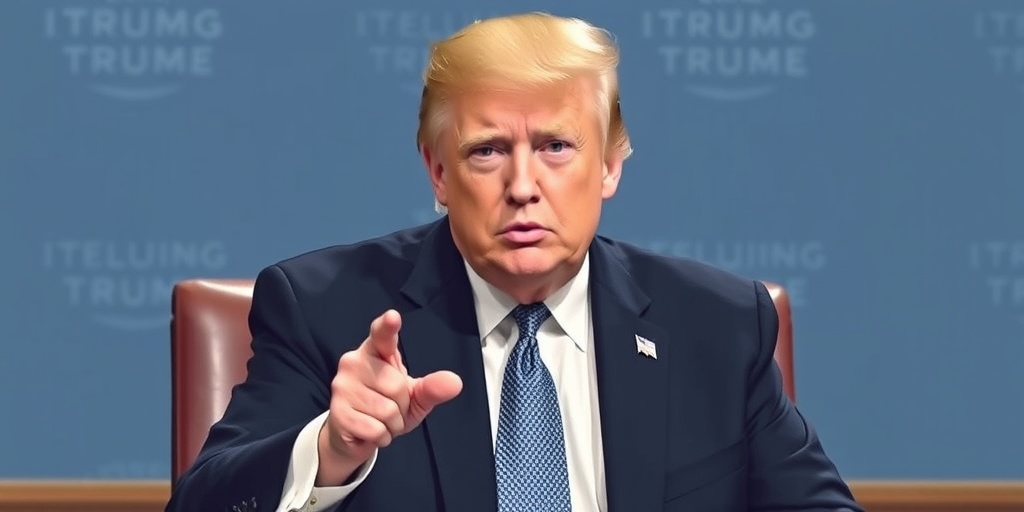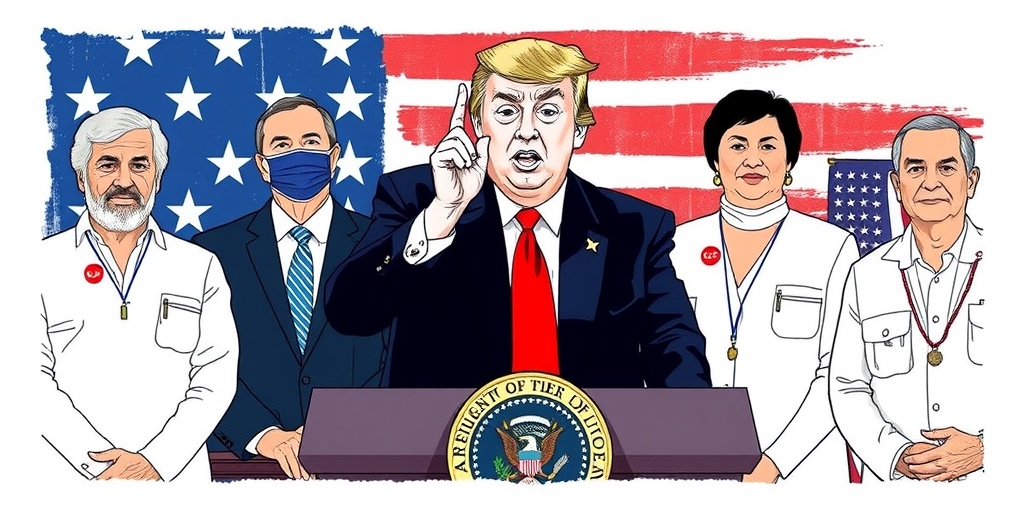Now Reading: Trump Intensifies Attacks on Law Firms, Targets Perkins Coie
-
01
Trump Intensifies Attacks on Law Firms, Targets Perkins Coie
Trump Intensifies Attacks on Law Firms, Targets Perkins Coie

Trump Targets Perkins Coie with New Executive Order in Ongoing Legal Battle
In a controversial move, President Donald Trump has signed an executive order aimed at punishing the prominent law firm Perkins Coie. Issued on Thursday, the order seeks to revoke the security clearances of Perkins Coie lawyers and restrict their access to government facilities and personnel. This action is perceived as retaliation for the firm’s legal representation of Democratic clients during the 2016 presidential election campaign.
Presidential animosity towards Perkins Coie is not new. It dates back to eight years ago when two of its attorneys, Marc Elias and Michael Sussmann, played crucial roles in the F.B.I.’s investigation into potential collusion between the Trump campaign and Russian operatives. Despite the firm being targeted, both attorneys have since departed from Perkins Coie, further complicating the narrative surrounding the order.
This new executive order follows a similar directive issued last month against Covington & Burling, a law firm that provided pro bono services for special counsel Jack Smith, who has pursued multiple indictments against Trump. While the Covington memorandum called for the revocation of security clearances and contracts, the Perkins Coie order is perceived as going even further. It aims to limit the firm’s lawyers’ access to federal buildings, impede their interactions with government officials, and prevent them from securing jobs with the federal government.
The content of the executive order denounces what it describes as "dishonest and dangerous activity" at Perkins Coie, particularly criticizing its engagement with a research firm that compiled a dossier of unverified allegations against Trump regarding his campaign’s potential Russian connections. By framing this work as an attack on democratic processes, the order accuses Perkins Coie of undermining the integrity of elections and the justice system.
Under the directive, federal agencies are instructed to suspend any existing security clearances held by Perkins Coie lawyers. They are also tasked with reviewing and potentially canceling any contracts the law firm holds with the government. The implications of this order on Perkins Coie remain uncertain at this point, raising questions about how it will affect the firm’s operations and lawyers.
In response to the order, Trump expressed satisfaction, referring to the actions against Perkins Coie as necessary measures against what he termed "weaponization" of legal tools aimed at politically targeting him. "This is an absolute honor to sign," he declared during a White House briefing. He consistently argues that the legal actions taken against him are illegitimate, framing them as politically motivated attacks.
Moreover, the executive order has broader implications beyond Perkins Coie. It also targets alleged unfair hiring practices at major law firms, specifically scrutinizing whether these firms engage in diversity and inclusion practices that the Trump administration disapproves of. The order calls for a comprehensive review of hiring practices in large firms to assess potential discrimination based on race or other factors, questioning the inherent equity in professional legal roles.
A spokesperson for Perkins Coie has yet to offer an official response to this executive order, and it remains unclear how many of its lawyers hold security clearances. This development follows a legal tussle that Trump initiated against Perkins Coie in 2022, accusing the firm, along with several others, including his former opponent Hillary Clinton, of a left-leaning conspiracy designed to sabotage his campaign. However, that lawsuit was dismissed by a judge for lack of substantive legal grounding.
The ramifications of Trump’s latest executive order are being met with concern among legal professionals and organizations. William R. Bay, the president of the American Bar Association, has voiced apprehensions that this might set a troubling precedent. He warned that punitive measures against law firms for their client choices undermine the integrity of the legal system itself. Emphasizing the importance of legal representation free from government retributions, Bay stated, “We reject the notion that the government can punish lawyers who represent certain clients or punish judges who rule certain ways.”
As tensions mount and the political landscape continues to evolve, the implications of Trump’s executive order on Perkins Coie and the broader legal profession are likely to be closely monitored in the weeks and months ahead. Legal experts are wary that should this order lead to punitive actions against legal professionals, it could have a chilling effect on legal representation and the ethical obligations that lawyers must uphold.
Stay Informed With the Latest & Most Important News
Previous Post
Next Post
-
 01New technology breakthrough has everyone talking right now
01New technology breakthrough has everyone talking right now -
 02Unbelievable life hack everyone needs to try today
02Unbelievable life hack everyone needs to try today -
 03Fascinating discovery found buried deep beneath the ocean
03Fascinating discovery found buried deep beneath the ocean -
 04Man invents genius device that solves everyday problems
04Man invents genius device that solves everyday problems -
 05Shocking discovery that changes what we know forever
05Shocking discovery that changes what we know forever -
 06Internet goes wild over celebrity’s unexpected fashion choice
06Internet goes wild over celebrity’s unexpected fashion choice -
 07Rare animal sighting stuns scientists and wildlife lovers
07Rare animal sighting stuns scientists and wildlife lovers





















